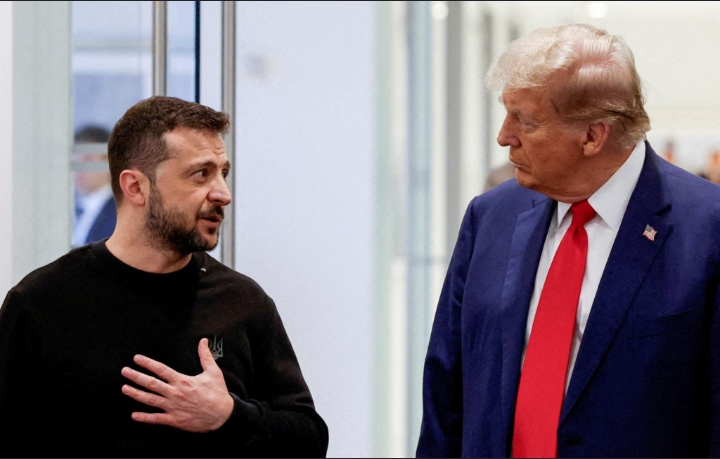Trump considering private military contractors in Ukraine as part of peace plan

Donald Trump is engaged in talks with European allies over a controversial plan that could see American private military contractors deployed in Ukraine. The move is being framed as a compromise, allowing the U.S. president to avoid sending American troops while still ensuring Washington’s influence in shaping a peace deal with Russia.
Sources say the contractors would be tasked with rebuilding frontline defences, constructing new bases, and safeguarding U.S. business interests in Ukraine. Their presence, according to European officials, could act as a deterrent to Moscow by signaling that any attack risks direct American retaliation.
The discussions form part of a broader European-led peace initiative backed by Britain and France. The plan also outlines air policing missions, expanded military training programs, and a Black Sea naval operation led by Turkey to secure trade routes.
A buffer zone and reassurance force
Some European nations are proposing a demilitarized buffer zone between Russian and Ukrainian forces. While Moscow has floated China as a possible guarantor, Kyiv and Western capitals remain wary given Beijing’s alignment with Russia. Instead, NATO members are pushing for a European-led reassurance force of several thousand troops positioned deeper inside Ukraine as a protective measure.
NATO and US support remain essential
Analysts stress that Washington’s logistical, intelligence, and aerial support would be critical to any European deployment. U.S. intelligence assets and heavy-lift aircraft are expected to play a central role, while Kyiv has been promised billions in military equipment purchases from American defense contractors.
Trump, who recently met Vladimir Putin in Alaska, has voiced openness to a European-managed security plan but is reluctant to commit U.S. troops. Officials suggest private contractors allow him to maintain his “America First” stance while still ensuring U.S. leverage in postwar Ukraine.
Skepticism over Russia’s intentions
Despite ongoing negotiations, European officials remain doubtful that Vladimir Putin is genuinely interested in a ceasefire. Many believe the Kremlin is using talks to prolong the conflict and secure more territory. Kyiv has also rejected proposals involving Chinese troops, emphasizing that Ukrainian sovereignty cannot be compromised.
As debates continue, the involvement of private U.S. contractors could mark one of the most significant shifts in American foreign policy since Iraq and Afghanistan—potentially reshaping both the war in Ukraine and Washington’s role in Europe’s security.

